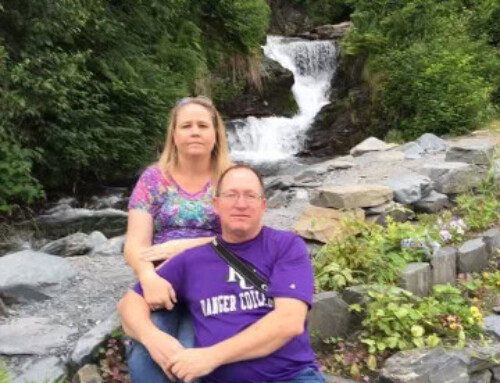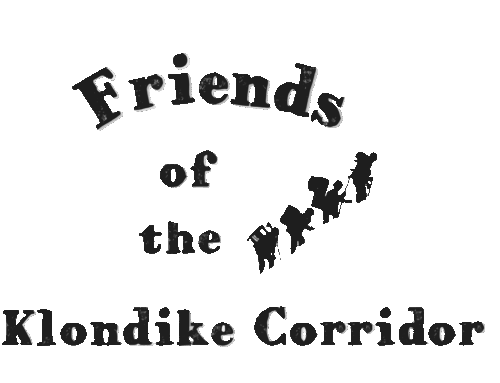By Melinda Munson
The scene outside Skagway School on March 16 was eerie. Musical instruments, sneakers, and other personal items were lined up against school walls. Teachers in medical gloves carried out brown bags of academic work, marked with students’ names and handed them to parents when they pulled into the parking lot. Everyone kept their distance.
“This feels so weird and I don’t like it,” said Josh Coughran, Skagway School superintendent, as he reflected on the empty building. Due to the increasing severity of COVID-19, Skagway cancelled classes for the week of March 16, just one week before spring break. The State of Alaska later announced school would be out of session until at least May 1.
“Everyone realizes how much of a strain it is on kids and parents,” Coughran said. He stressed the importance of “heeding the advice of folks that know best.”
“We are protecting the health and safety of our students and the community,” Coughran said.
Cindy Rau, Skagway School’s music teacher, homeschooled four of her eight children. She shared ideas to help students and their families manage school work and the isolation that comes with social distancing.
“Just keep kids on that learning track the best you can,” Rau said. She suggested creating a realistic schedule.
“Create routines that work for your family. Keep it consistent,” she said. “Don’t compare yourself to how other parents are doing it.”
Rau recommended turning off the news and taking breaks from social media. She emphasized this is a time for family bonding.
“These are precious moments. I would love to have someone here with me,” said Rau, whose children are grown and live outside of Skagway.
Rau was adamant about one thing: keeping kids on a consistent bedtime, early enough for parents to enjoy a break.
“You need that. You need to take care of yourself,” she said.
John Hischer, a licensed clinical social worker for the Dahl Memorial Clinic, hopes parents have conversations with their kids about the recent upheaval. He knows that discussing COVID-19 with children can be difficult and offered the following strategies.
“Prepare yourself for the conversations with good facts. Process your own anxiety first,” Hischer said. He suggested that caregivers talk to friends, family or the clinic. Parents can visit the Center for Disease Control’s website (https://www.cdc.gov/coronavirus/2019-ncov/index.html) for accurate information as well as the Alaska Department of Health and Social Services (http://dhss.alaska.gov/Pages/default.aspx).
After dealing with their own anxiety, Hischer said the next step is for caregivers to assess what their child knows.
“Just because they’re not saying anything doesn’t mean they’re not thinking about it,” he said.
Next, practice active listening skills. Parents should put down their phones and give their full attention to the conversation. They can then reflect back what their child says.
“Don’t dismiss the fears that they have,” Hischer said. For example: It sounds like you’re really scared about Grandma. Let’s talk about that.
Lastly, Hischer recommends parents reframe the situation by focusing on the positive. Time off from school and away from friends means a chance for at-home art projects and lots of family time.
According to Hischer, parents can help their kids feel safe by letting them know the adults in their life are dealing with the situation. There are “lots of adults working on this, lots of people to keep you safe,” Hischer said. “Parents can also “emphasize good hygiene and things they (children) can actually control.”
Coughran wants to remind parents that social isolation doesn’t necessarily mean staying in the house. He frequently takes hikes with his children and feels lucky to have “trails right out the front door.”
Rau had one more piece of advice for parents for the month ahead.
“Give yourself some grace,” she said.







Leave A Comment